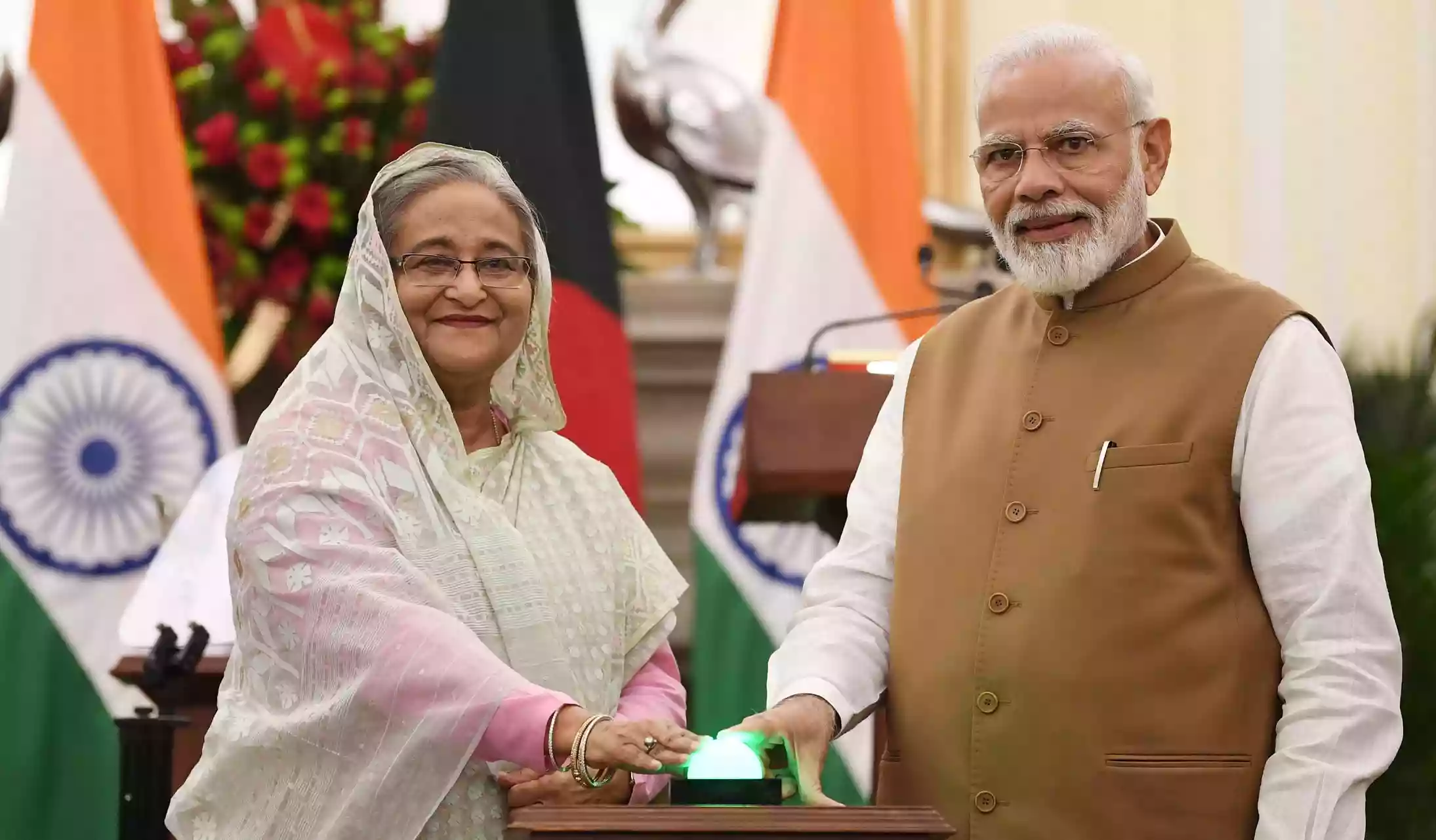Gopal Khemka Murder: Police guns down weapon supplier in an encounter
.gif)
.gif)

India and Bangladesh celebrated a significant milestone on Wednesday by jointly inaugurating three major connectivity and energy projects, all developed with Indian assistance. The projects – the Akhaura-Agartala cross-border rail link, the Khulna-Mongla port rail line, and unit II of the Maitree super thermal power plant – were jointly launched by Prime Minister Narendra Modi and his Bangladeshi counterpart Sheikh Hasina at a virtual ceremony.
Under the leadership of Prime Minister Modi, India has solidified its position as Bangladesh's largest development partner, offering a substantial portfolio of nearly $10 billion in grants and concessional loans.
Speaking at the ceremony, Prime Minister Modi highlighted the importance of infrastructure and connectivity development to meet the aspirations of the people in both nations. Over the past nine years, India and Bangladesh have introduced three new bus services, launched three rail services, established four new immigration check posts, and initiated container and parcel trains in 2022.
The Akhaura-Agartala cross-border rail link is a monumental achievement, as it connects India's northeastern states to Bangladesh by rail for the first time, facilitating improved connectivity between Bangladesh's Chattogram port and the northeastern region. This development is expected to boost trade and tourism.
The 64.7-kilometer Khulna-Mongla port railway line, a $380-million project completed with Indian line of credit, connects Bangladesh's second-largest port to the national rail network for the first time. It is also linked to India through the Petrapole cross-border rail link.
The Maitree super thermal power project, constructed with an Indian concessional financing scheme loan of $1.6 billion, is a 1,320 MW plant situated in the Khulna division of Bangladesh. Unit II was inaugurated during the ceremony, following the launch of Unit I by the two prime ministers in September 2022. This project is designed to address the increasing energy demands of the people and businesses in southern Bangladesh, contributing to energy security in the region.